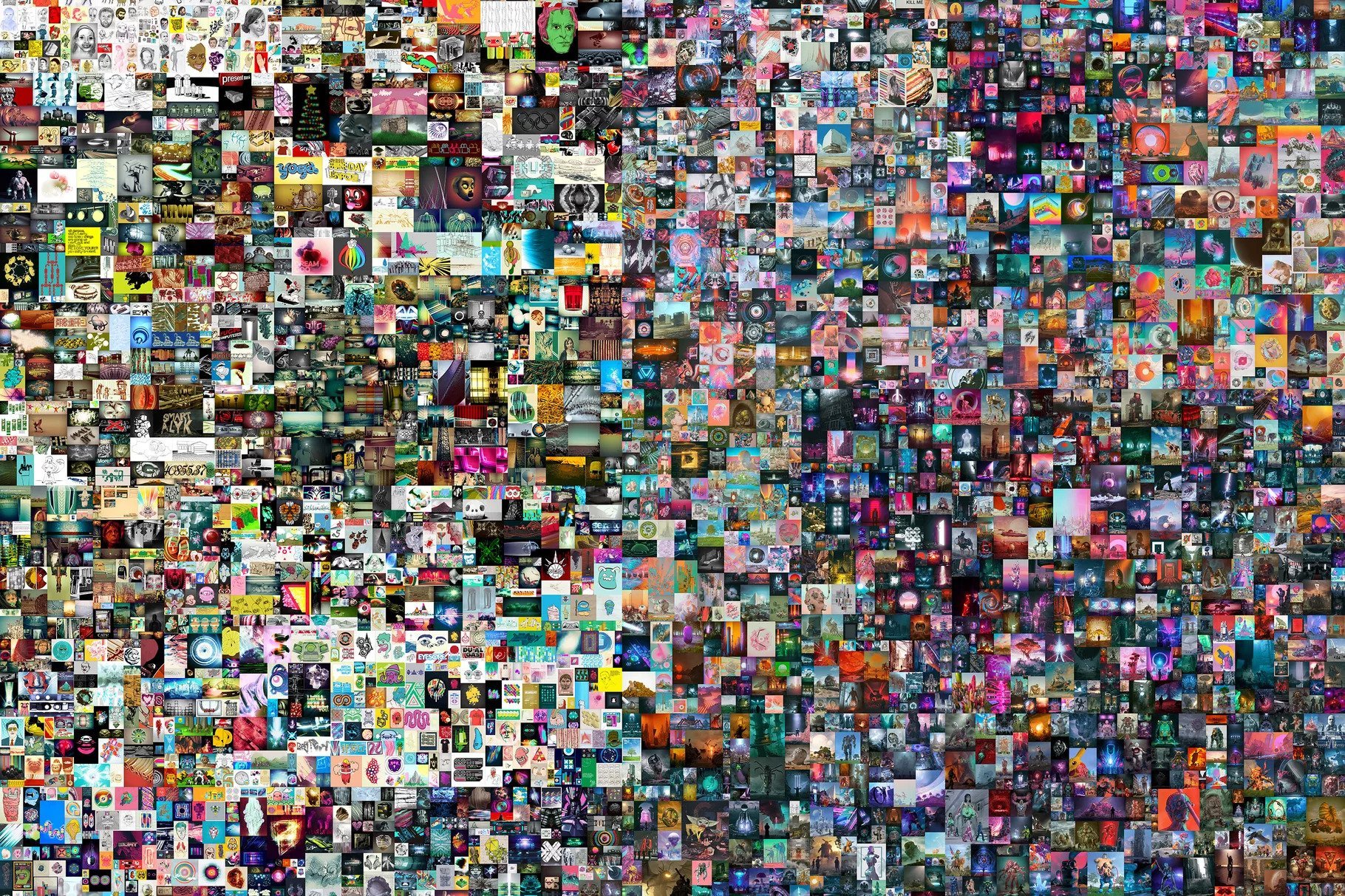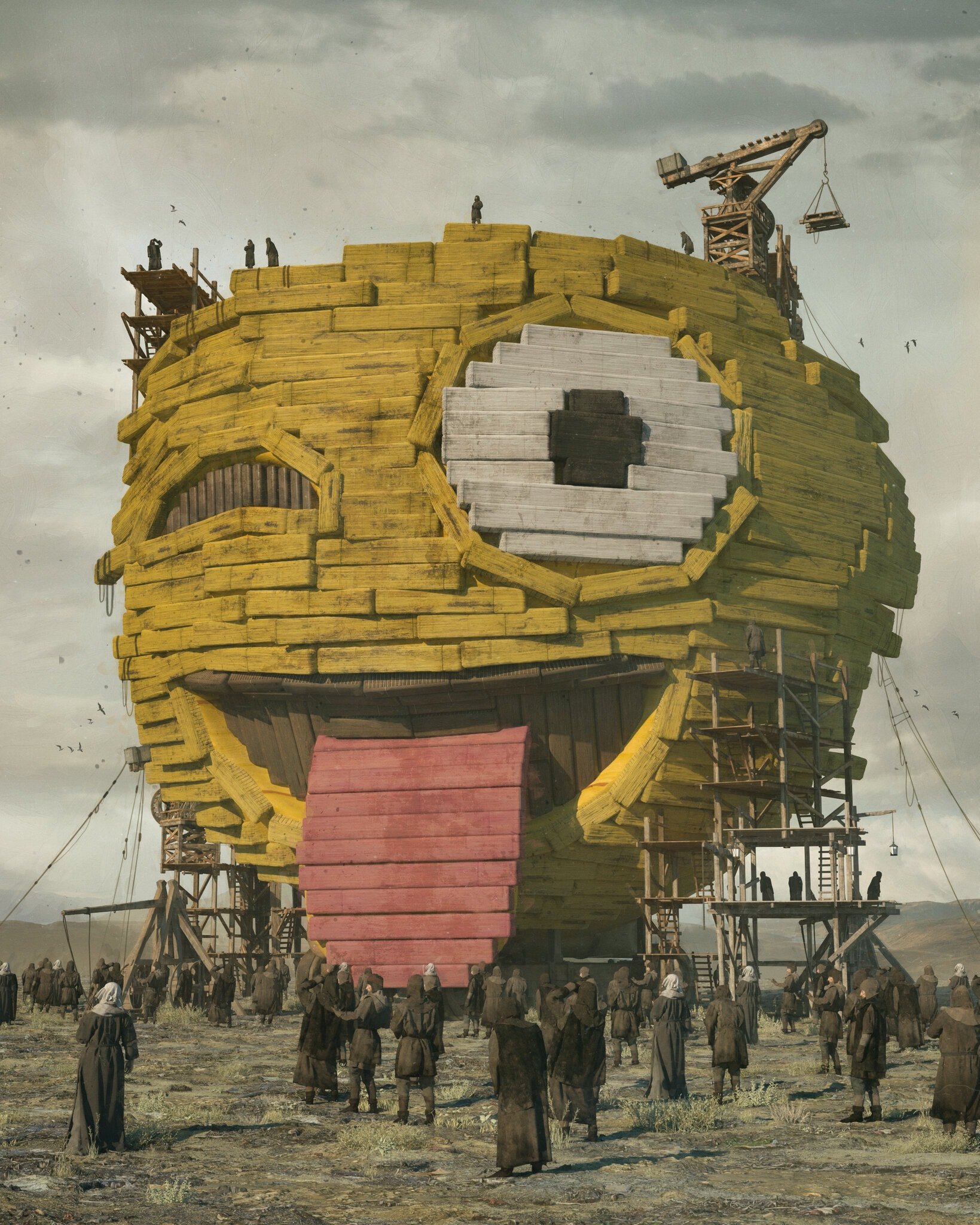
When Christie's set out to auction its first-ever digital-only artwork — "Everydays: The First 5000 Days"— on March 1, 2021, they had fully expected it to fetch more than the minimum bid of $100. However, the 255-year-old British auction house had never in its wildest dreams envisioned that the unique masterpiece, minted by Mike Winkelmann, aka Beeple, would fetch a record $60.25 million ($69.3 million with fees).
This is the highest price ever paid for a purely digital piece of art and the third-highest for the work of a living artist. Topping the list is Jeff Koons, whose "Rabbit" sold for $91.1 million in 2019, followed by David Hockney, whose "Portrait of an Artist (Pool with Two Figures)" fetched $90.2 million in 2018.
Christie's says the online auction, conducted over ten days, drew widespread interest from Beeple fans worldwide. The bid price rapidly escalated from $4 million on March 5, 2021, to over $14 million by the morning of March 11, 2021. It steadily rose to $37.5 million before soaring to $50 million in the auction's final few minutes, and, then, to the unprecedented hammer price of $60.25 million. Fittingly, the digital masterpiece was paid for in Ethereum — a digital currency traded via online exchanges and stored in various types of cryptocurrency wallets.
The winning buyer was later identified as Vignesh Sundaresan, a Singapore-based crypto investor and co-founder of NFT fund Metapurse. Sundaresan, who goes by the pseudonym Metakovan, told CNBC News that he would have willingly paid even more for the digital image. “This NFT is a significant piece of art history," the entrepreneur explained. “Sometimes these things take some time for everyone to recognize and realize. I’m OK with that. I had the opportunity to be part of this very important shift in how art has been perceived for centuries.”
Winkelmann's quest to publish a daily digital artwork under the nickname Beeple began in May 2007, with a caricature of his uncle Joe. While initially meant to market his skills to corporations such as Apple and Adobe, the talented artist soon gained a loyal fan base eager to see his "everydays." However, despite having over 2 million followers on Instagram, Beeple was unable to sell his digital artwork. That's because it was hard for a potential buyer to claim ownership of something that could be easily and endlessly duplicated.
However, that changed in 2019, after Beeple imprinted all his artwork with non-fungible tokens, or NFTs. Built on the same technology as popular cryptocurrencies such as Ethereum and Bitcoin, NFTs allow artists and collectors to prove and track ownership of digital assets. The purchaser of an NFT receives a record and a hash code showing ownership of the unique token associated with the particular digital asset, not the asset itself. While the contract may include other associated rights — such as the permission to use, copy, and display the images and/or video associated with the NFT for personal, non-commercial use — they are not guaranteed. The technology has been around since 2015, but NFTs only began to gain traction with the online collecting world in 2017, after the blockchain Ethereum introduced a new standard that supported the unique tokens. Their popularity has increased exponentially during the COVID-19 pandemic.
Beeple sold his first two NFT art pieces in October 2020 for over $60,000 each and a third, in February 2021, for a nifty $6.6 million! Buoyed by the success, the artist collaborated with Christie's to create a collage of the first 5000 "everydays" images he has produced since 2007, and the rest, as they say, is history!

The thrilled multimillionaire says, “Artists have been using hardware and software to create artwork and distribute it on the internet for the last 20+ years, but there was never a real way to truly own and collect it. With NFTs, that has now changed. I believe we are witnessing the beginning of the next chapter in art history, digital art.”
Artists are not the only ones benefiting from the NFT mania. On March 22, 2021, Twitter CEO Jack Dorsey's first-ever tweet, offered for sale as an NFT, was snapped up by a Malaysia-based businessman for 1,630.58 ether, worth about $2.9 million at the time of the purchase. Dorsey plans to donate the proceeds from the March 21, 2006, tweet, which read, "just setting up my twttr," to charity.
Resources: BBC.com, Dezeen.com, CNet.com, theGuardian.com
